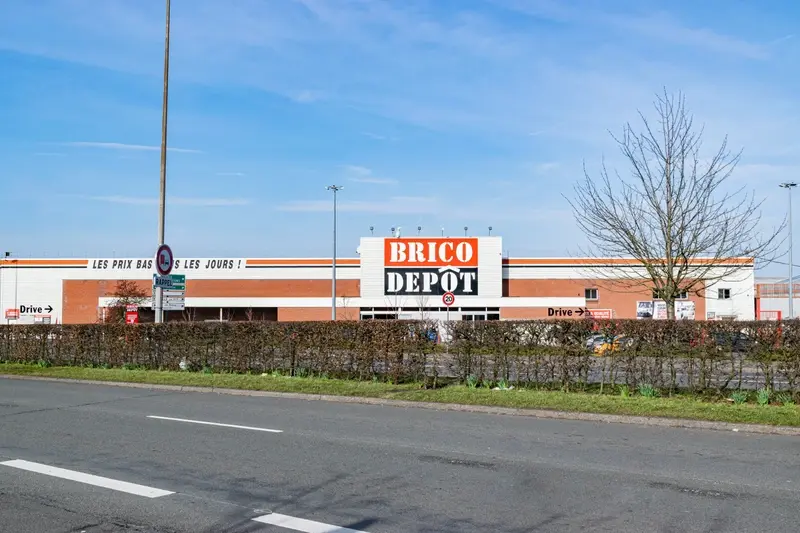
- DIY giant issues another profit warning
- Weakness in France continues
- UK consumer remains resilient
Kingfisher (KGF) was the FTSE 100’s biggest casualty on Wednesday, with shares in the home improvement giant cheapening 7% to 215.1p after the B&Q owner downgraded full year profit guidance for the second time in three months amid ongoing weakness in France.
Group like-for-like sales were down 3.4% in the three weeks to 18 November amid persistent softness in France which Kingfisher expects to continue ‘for the balance of the year’.
ANOTHER DOWNGRADE DISAPPOINTS
Kingfisher, which owns the Castorama and Brico Depot chains in France, lowered its full-year adjusted pre-tax profit guidance from £590 million to £560 million to reflect a continuation of the French market weakness witnessed in the third quarter into the opening three weeks of the year’s final quarter.
And with sales tracking behind expectations the firm, which recently launched a £300 million share buyback, also spooked investors by downgrading full-year free cash flow guidance from £500 million to £470 million.
CHALLENGES ACROSS THE CHANNEL
Total sales were down 2.1% to £3.2 billion in the third quarter to October and like-for-like sales softened 3.9% as performance was impacted by the French market.
French like-for-like sales slumped 8.6% amid a weak DIY retail market and unusually warm weather, which delayed insulation, plumbing and heating sales, while the company also saw weak performances in other key markets across Europe (Poland, Iberia, Romania) as consumers continued to grapple with cost-of-living pressures.
However, in the UK & Ireland, like-for-like sales grew 1.1% thanks to more resilient consumer demand with B&Q, TradePoint and Screwfix growing sales and market share.
Kingfisher called out ‘particularly strong’ market share gains at Screwfix, which is expanding overseas and recently launched as a pure-play online retailer in six new European countries.
WHAT DID THE CEO SAY?
‘Reflecting the weakness of the French market, and notwithstanding our proactive cost actions, we have lowered our group profit guidance for the full year,’ groaned chief executive Thierry Garnier. ‘On the medium-to-longer term outlook, we remain very positive for home improvement growth in our markets, and our ability to grow ahead of our markets.’
EXPERT VIEWS
Begbies Traynor’s (BEG:AIM) Julie Palmer said that while Kingfisher has expressed a commitment to proactively managing operating costs in response to market conditions, especially in France, ‘the lowering of its profit guidance suggests its DIY approach is not yet capable of fixing a business struggling through the ongoing economic headwinds.’
Palmer added: ‘As Kingfisher continues to battle with reduced demand, it seems unlikely that a quick return to peak performance will be on the horizon, particularly as it muddles through the ongoing weaknesses of the retail and housing sectors.’
Russ Mould, investment director at AJ Bell, explained that DIY activity is closely linked to property markets which have been scarred by rising borrowing costs and weak consumer confidence.
‘The message from CEO Thierry Garnier, appointed in 2019, is that the company will focus on what it can control like growing market share and driving productivity gains – the latter an area which can be notoriously difficult to execute on. Questions may be raised about the structure of the group and the role the various businesses play in it and whether any of these are candidates to be sold off.
‘If Garnier is to have a happier ending to his tenure than his immediate predecessor and compatriot Veronique Laury, he needs to show he can get the business on track in tough times as well as in favourable market conditions.’
DISCLAIMER: Financial services company AJ Bell referenced in this article owns Shares magazine. The author of this article (James Crux) and the editor (Ian Conway) own shares in AJ Bell.
LEARN ABOUT KINGFISHER




